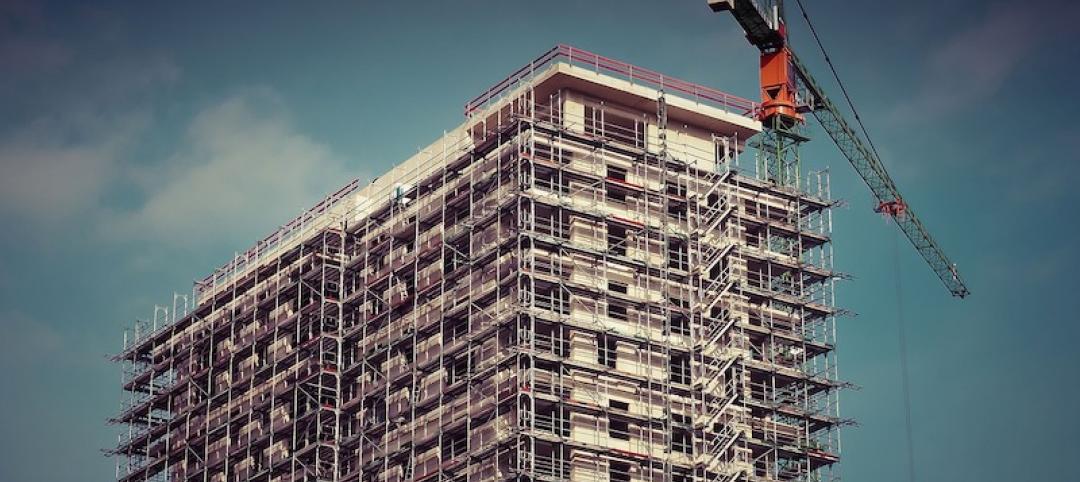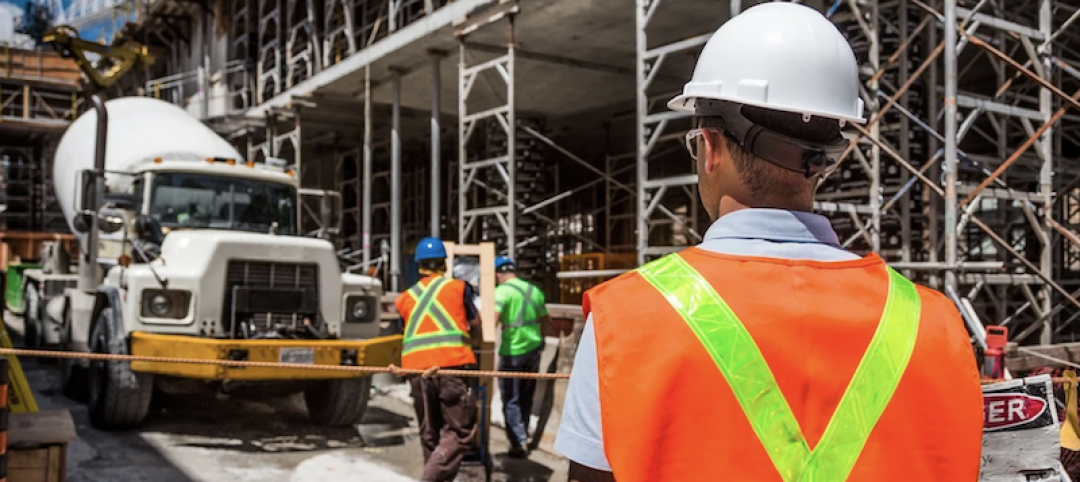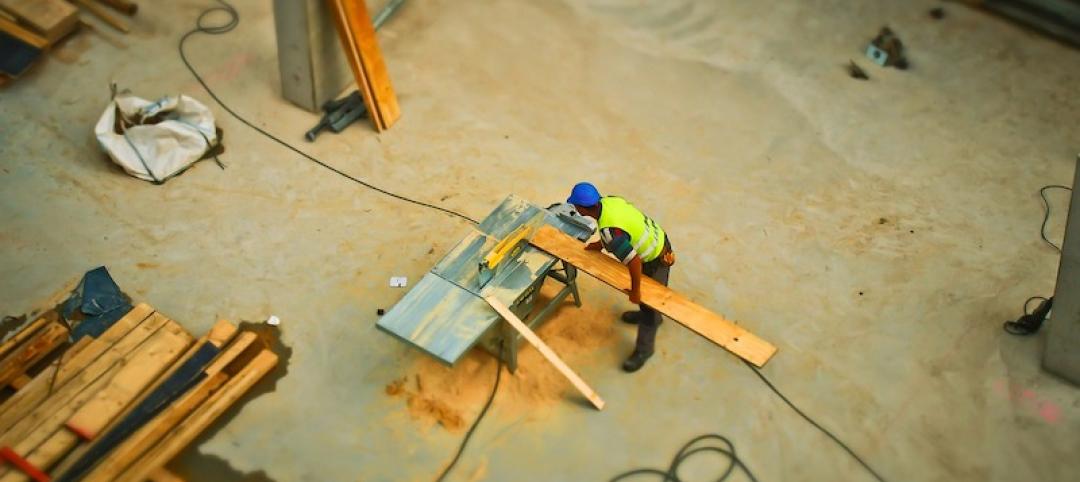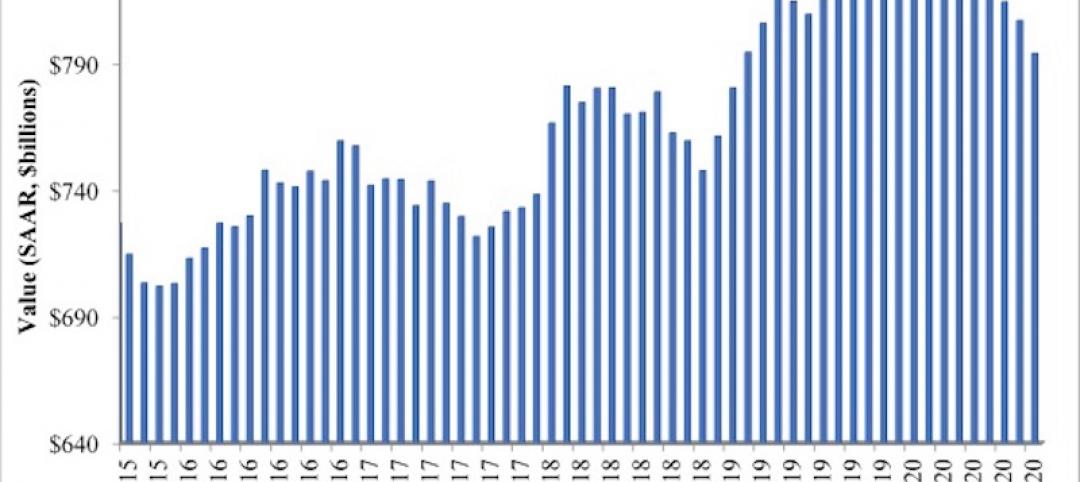Construction employment declined in more than nine out of 10 metro areas from March to April, a time when industry employment typically increases in most locations, an analysis by the Associated General Contractors of America of new government data shows. Association officials said new federal transportation funding could help restore many lost construction jobs, but cautioned that new legislation released today by House Democrats includes new regulatory measures that could undermine the broader goals of the measure.
“Today’s employment report shows how few areas were left unscathed by April’s unprecedented job losses,” said Ken Simonson, the association’s chief economist. “Sadly, our latest survey shows project cancellations are escalating, making further job losses inevitable unless there is funding for widespread new projects.”
The economist said construction employment declined between March and April in 326, or 91%, out of 358 metro areas and increased in only 20 areas (6%). Industry employment was unchanged in 14 areas. Over the previous 30 years, 75% of metro areas added construction jobs from March to April, on average, while 12% of metros shed jobs.
New York City lost the largest number of construction jobs for the month: 75,900 jobs or 49% of the March total. There were also extremely large construction job losses in the Seattle-Bellevue-Everett, Wash. area, 44,200 jobs or 41%. Construction employment fell by half or more in three areas: Montgomery County-Bucks County-Chester County, Pa. (-54%, -27,200 jobs); Warren-Troy-Farmington Hills, Mich. (-52%, -26,100 jobs); and Brockton-Bridgewater-Easton, Mass. (-50%, -2,300 jobs).
Simonson noted that more respondents in the association’s latest survey reported an upcoming project had been canceled in May or June than in April, implying that further job losses are likely. One-fifth of respondents reported a project scheduled to begin in May had been canceled, as did nearly one-quarter (24%) of respondents regarding a project scheduled to start in June or later, compared to 16% in April.
Association officials said new federal infrastructure investments in roads, bridges, transit and rail systems, like those proposed in a new transportation bill released today by House Democrats, would provide a needed boost to construction employment in many parts of the country and support a broader economic recovery. But they cautioned that new programmatic and regulatory requirements in the measure could undermine some the bill’s potential economic benefits. They urged Congressional leaders to work in a broad, bipartisan manner to rapidly pass a measure that expands highway capacity, improves bridges, builds transit and rail systems and supports long-term economic growth before current legislation expires.
“It is encouraging to see House Democrats proposing a significant increase in investments for transportation infrastructure,” said Stephen E. Sandherr, the association’s chief executive officer. “With over 40 million people unemployed and construction jobs declining in most metro areas, Congress needs to ensure that new, sustainable, investments bring as many people back to work as possible to help improve our aging highway, transit and rail systems.”
View AGC’s coronavirus resources and survey. View the metro employment data, rankings, map, highs and lows, and top 10.
Related Stories
Market Data | Dec 2, 2020
Nonresidential construction spending remains flat in October
Residential construction expands as many commercial projects languish.
Market Data | Nov 30, 2020
New FEMA study projects implementing I-Codes could save $600 billion by 2060
International Code Council and FLASH celebrate the most comprehensive study conducted around hazard-resilient building codes to-date.
Market Data | Nov 23, 2020
Construction employment is down in three-fourths of states since February
This news comes even after 36 states added construction jobs in October.
Market Data | Nov 18, 2020
Architecture billings remained stalled in October
The pace of decline during October remained at about the same level as in September.
Market Data | Nov 17, 2020
Architects face data, culture gaps in fighting climate change
New study outlines how building product manufacturers can best support architects in climate action.
Market Data | Nov 10, 2020
Construction association ready to work with president-elect Biden to prepare significant new infrastructure and recovery measures
Incoming president and congress should focus on enacting measures to rebuild infrastructure and revive the economy.
Market Data | Nov 9, 2020
Construction sector adds 84,000 workers in October
A growing number of project cancellations risks undermining future industry job gains.
Market Data | Nov 4, 2020
Drop in nonresidential construction offsets most residential spending gains as growing number of contractors report cancelled projects
Association officials warn that demand for nonresidential construction will slide further without new federal relief measures.
Market Data | Nov 2, 2020
Nonresidential construction spending declines further in September
Among the sixteen nonresidential subcategories, thirteen were down on a monthly basis.
Market Data | Nov 2, 2020
A white paper assesses seniors’ access to livable communities
The Joint Center for Housing Studies and AARP’s Public Policy Institute connect livability with income, race, and housing costs.

















